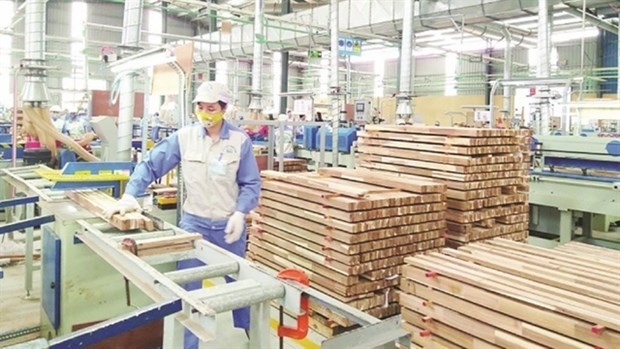Industrial sector’s added value expected to rise 2.68 per cent
Friday, February 14,2020
AsemconnectVietnam - Acute respiratory infections caused by the new strain of the coronavirus (COVID-19) have had a major impact on Vietnam’s processing and manufacturing sectors, according to a recent report released by the General Statistics Office (GSO).
Most notably, the epidemic has affected production industries that use raw materials and accessories which originate from China as well as Chinese enterprises operating in the country.
The GSO forecasts that if the epidemic is successfully nullified within the first quarter, the industrial sector’s added value will rise by only 2.68 per cent in comparison with the same period last year, of which the processing and manufacturing industry will increase by 2.38 per cent. In contrast, the figure was anticipated to reach 11.21 per cent if the epidemic had not taken place.
Some of the industries and products that have been hardest hit by the epidemic include textiles, garments, leather, shoes that have raw materials imported from China such as cloth, cotton, fiber, thread, and leather, along with other accessories within the textile, leather, and garment industries.
During the first quarter, the textile industry is poised to increase by 1.9 per cent, with expectations at 10.5 per cent if there had been no epidemic, whilst the garment industry will decrease by 1.5 per cent, in contrast to expectations of a 7.9 per cent rise in addition to leather and related products increasing by 0.5 per cent, in comparison with expectations of 8.5 per cent.
Production of electronics, computer, and optical products, which currently contributes approximately 18 per cent of the added value of the industrial sector, are expected to suffer a decrease of 2.3 per cent during the reviewed period, compared to an expected increase of 2.4 per cent.
Production of motor vehicles is projected to increase by 6.9 per cent, despite the figure predicted to surge by 9.3 per cent without the epidemic, while metal production could grow by only 5.2 per cent.
In order to stabilise production, GSO General Director Nguyen Bich Lam said that the GSO has proposed the government continues to manage macro-economic and monetary policies in a flexible way as a means of controlling inflation and maintaining macroeconomic stability.
In addition, the simplification of administrative procedures needs to be sped up so large -scale public investment projects can be implemented, while a particular focus should be placed on improving the business climate, national competitiveness, and facilitating the development of the private sector.
He underlined the need to support local firms in seeking other markets to import raw materials for their production activities to overcome their difficulties caused by the epidemic.
Source: VOV.VN
Exports of wood and wood products continues to face difficulties
Import and export decreased in first quarter of 2023
Exports of rattan, bamboo, sedge and carpet products decreased in first quarter
Reference exchange rate up 6 VND
Seafood market update: Exports down by 27% in the first quarter
DAILY: Vietnamese pepper prices remained unchanged on April 11
DAILY: Vietnamese coffee prices remained unchanged on April 11
Trade pacts key to 2023 export growth
Garment exports slump in first quarter
Stocks of coffee producers less appealing on market
A brief overview of the Vietnam economy: Slow growth in Q1
Reference exchange rate down 3 VND at week’s beginning
DAILY: Vietnamese pepper prices remained unchanged on April 10
Seafood exports reached over 1.8 billion USD in first quarter of 2023

Plan on implementing Decision No. 327/QD-TTG dated March ...
Concretize viewpoints, objectives, tasks and solutions of the plan in accordance with practical conditions of the locality, associating ...Plan on implementing national environmental protection ...
Implementation plan of marine aquaculture development ...
Program on conservation and development of Vietnamese ...
Plan on improving quality of human resources to 2025 and ...

Efforts taken to turn culinary culture into national ...
The Vietnam Cuisine Culture Association (VCCA) is taking steps to implement a project to build and develop Vietnamese culinary culture ...Vietnamese cuisine making a name for itself with ...
Vietnam advance to next round of AFC U20 Women’s Asian Cup
Cultural tourism and traditional values promoted through ...



